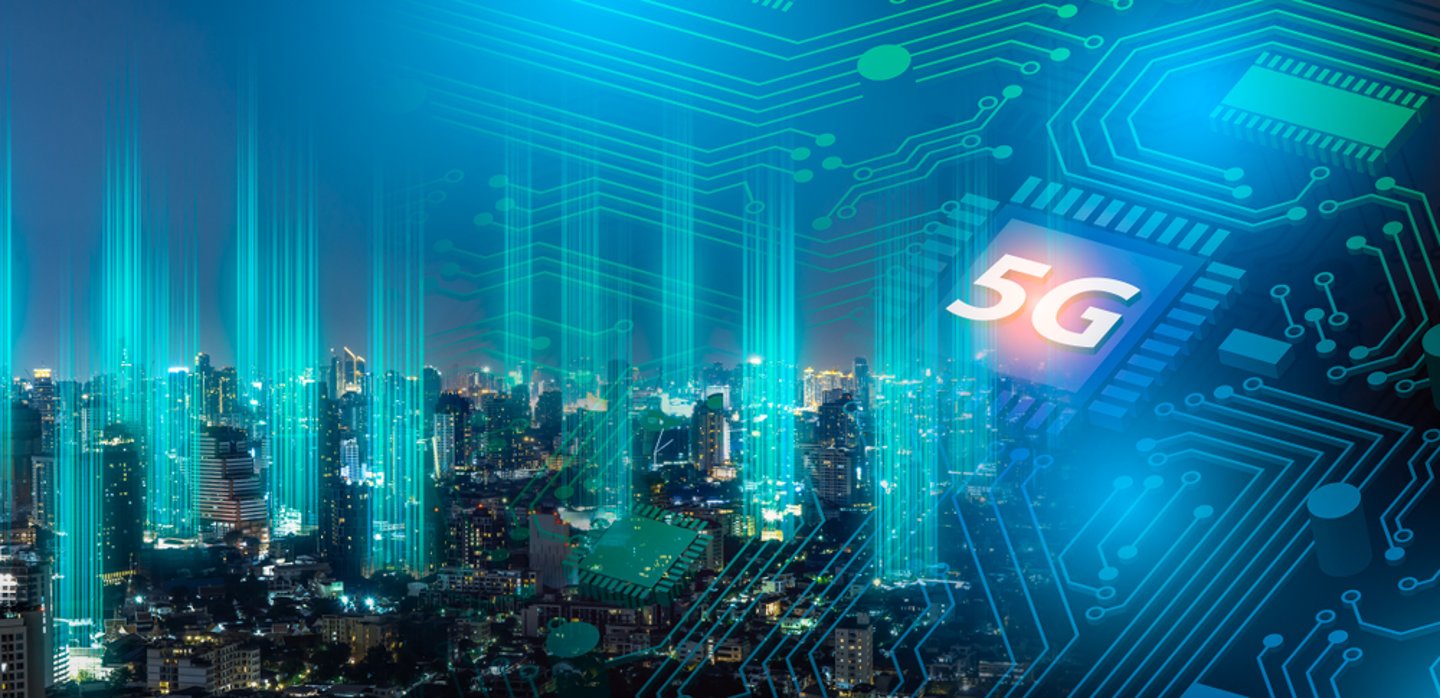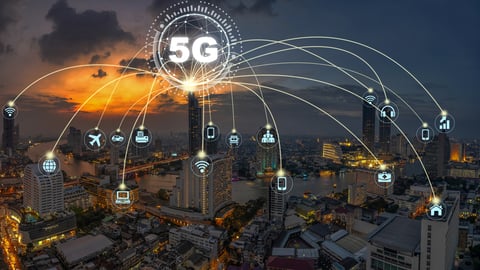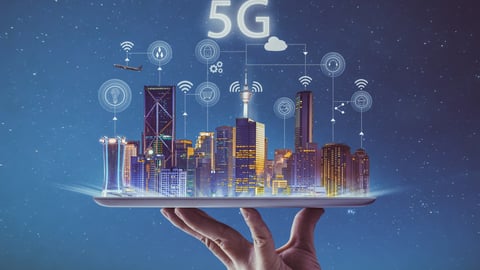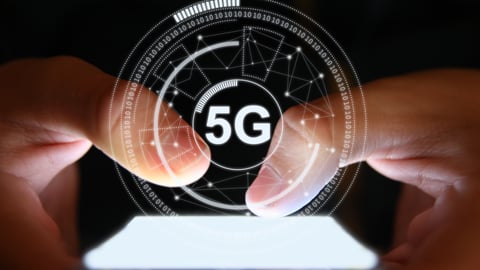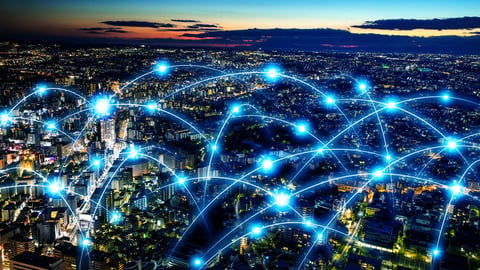The Case for 5G in Hospitality
In Hospitality Technology’s 2021 Lodging Technology Study, we found that 71 percent of hotel operators ranked 5G as an “emerging technology that had moderate to major potential.” For many of us, 5G might not seem like an emerging technology, as we have been discussing it at length for a few years now. However, it is only recently that both consumers and businesses are gaining regular access to the 5G network. Like previous generations of connectivity, 5G offers some significant improvements that – if used properly – could help create a better guest experience and reduce operational costs. To find out what hoteliers need to know about 5G, we spoke with a variety of subject matter experts. Here is what they had to say.
HOW 5G BENEFITS GUESTS
When it comes to the internet, all guests want the same thing: a connection that is robust, reliable, seamless, fast and secure, says Christos Karmis, CEO, Mobilitie. For hoteliers, 5G provides an incredibly fast connection while also being “a more reliable and secure network, which is a game-changer for those who travel for work.”
In fact, 5G could help a hotel market itself as a place where guests can work during the day and explore a new city at night – taking advantage of the bleisure trend that has taken hold in America. By offering a seamless work-from-anywhere experience, hotels have the opportunity to become the new modern office, says Abel Mayal, Senior Vice President 5G Technology and Marketing, Airspan.
"From a guest perspective, the security of being on the same mobile network they use every day will offer an instant level of comfort, as well as a lot less friction during the hotel stay," adds citizenM Hotels CIO Mike Rawson. "The performance of the 5G network will also generally be stronger than the hotel WiFi, so the guest will have a consistent experience regardless of where they go on the property."
But 5G benefits guests even more than just providing a faster network. 5G will allow hoteliers to access more relevant, insightful data on guests so that they can provide a more personalized and unique guest experience, says Michael Colaneri, VP of Retail, Restaurant and Hospitality Solutions at AT&T.
“Imagine hotel guest experiences starting at their home, with unique ‘day of travel’ experiences that can be shared on social media platforms,” he adds. “These experiences range from low latency gaming, unique content to watch or read while traveling, or even a tie in with the entertainment the guest would experience at the hotel venue.”
Plus, augmented and virtual reality solutions are growing in popularity within the hospitality industry to increase guest engagement, Colaneri points out. For example, some hotels are looking into offering guests VR previews of local tourist attractions to help them determine which experience would be worth their while.
However, AR and VR solutions rely on “extreme amounts of computing power, data flow and low latency. With 5G, hotels can help power these new, innovative technologies with more speed and reliability, gather more data and ultimately help build a long-lasting relationship with customers,” Colaneri adds.
Of course, the entire guest experience on-property benefits from 5G when hotels use it to create and support building automation, in-room services, and guest interaction, says Jay Floyd, VP of Strategy & Product, ExteNet.
HOW 5G BENEFITS HOTELS
5G won’t just offer benefits for hotel guests. It offers significant benefits to the hospitality industry by creating efficiencies in current operations, says Robert Mesirow, Partner and Connected Solutions/IoT Leader at PricewaterhouseCoopers.
Consider this, “With 54 percent of TMT leaders ranking talent acquisition and retention as the No. 1 threat to business growth in 2022, the industry must find ways to do more with less,” Mesirow explains. “Currently, we are seeing hotels tap into private, high bandwidth networks to connect additional cameras (without expensive cable runs) to enhance security across their properties. In the future, I predict 5G will unlock new robotic functions in the industry, including using robots for security patrols, cleaning and room service, in addition to providing enhanced crowd analytics to monitor movement across the property.”
Don’t fall into the trap of thinking that 5G is just another “G,” agrees Richard Wagner, Director of Certification and Compliance, Nomadix.
“Since 5G can provide speeds in the gigabit range, wireless 5G could be used to provide either a backup or last-mile connection to the hotel,” he notes. “It can also be deployed during construction since obtaining a physical circuit can take 45 days or longer. And if a hotel has deployed Wi-Fi 6/6E in the hotel, the carriers can provide seamless roaming between the 5G cellular network and the Wi-Fi infrastructure.”
And 5G architecture can provide the hotel with local computing capabilities via either an on- or off-premise Multi Edge Computing processing device, Wagner adds. “This could essentially provide the hotel with additional computational functionality that could be managed and supported by the carrier.”
5G can also significantly lower hotel operation costs, as IoT solutions that are connected with 5G can proactively detect and solve issues at a rapid pace, says Arun Santhanam, Vice President, Head of Telco, Capgemini Americas.
Faster transmission speeds also mean faster communication times between hotel tech stacks and client facing applications such as automated check-in, food delivery/room service, entertainment services, and more, notes Bob Bilbruck, CEO, Captjur.
In fact, “5G is much more than just a network upgrade,” says Shane O’Flaherty, Global Director: Travel, Transportation & Hospitality, Microsoft. “It will help enable a new application paradigm and pave the way for the emergence of a new breed of network-intelligent applications to solve problems previously out of reach. These modern connected apps use 5G technology to communicate and interact with the network, leveraging APIs to better control and deliver a high performance, optimized user experience.”
5G ISN’T ALL RAINBOWS AND ROSES JUST YET
Hoteliers need to keep in mind that “5G is still in its early days,” O’Flaherty notes. “Accessing the opportunity [it offers] is like trying to enter a building with no door. Anyone trying to enter confronts a host of complexities including a wide range of standards, multiple vendors and operators, and numerous network configurations. Developers need to deploy across unique carrier constraints, API communication complexities and deploy across different topologies.”
And hoteliers need to realize that if they have an older wireless network on property, it most likely won’t support 5G wireless services – meaning it will need to either be augmented or replaced, Floyd says.
Rawson agrees, noting that "mobile boosting will be mandatory. Strength and consistency of service is essential, and you may need to invest to ensure your 5G is highly available throughout your property."
“A wireless network that supports 5G services is complex and requires expertise from a company that specializes in the design and deployment of the infrastructure,” Floyd adds. “In addition to the technical aspects of the project, the company needs to understand the property and its operating intricacies.”
For these reasons, it becomes important for hoteliers to first identify the primary use cases they are trying to solve for (connectivity, security, customer experience, etc.) and then decide what type of private network they want to develop and how they can recover the costs associated with 5G integration, Santhanam says. Once that has been done, “hoteliers need to put into place a thorough security plan to ensure that the privacy and safety of their guests will be upheld on this new 5G system.”


